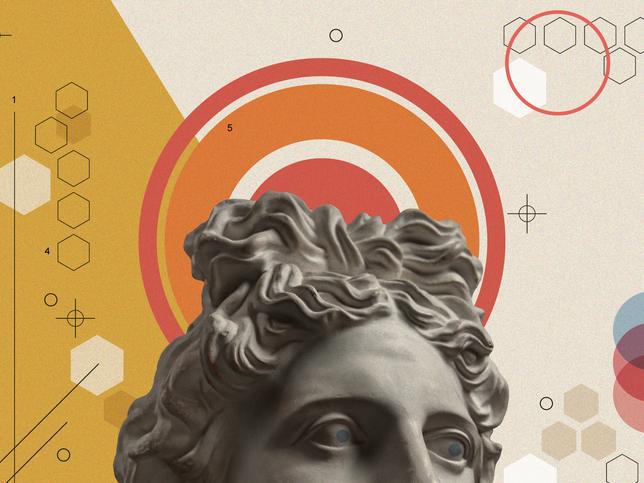
Decolonising the curriculum through collaboration, partnership and dissemination

You may also like
In 2021 we carried out listening exercises with staff as part of an institutional race equality review. It became clear that we needed to engage in work to define and support colleagues to decolonise their curricula. Our research pointed to the importance of:
- defining what decolonising the curriculum means to us as an institution
- including a range of colleagues and students in the activity
- to move beyond the dominant Eurocentric canon and to include representatives from our students’ union
- to create resources to support and encourage colleagues to decolonise their curricula, rather than issuing directive material, to reduce potential resistance.
A decolonising-the-curriculum working group was tasked with creating an institutional vision and a set of resources to support colleagues with this work. After gathering student and staff feedback, we agreed to create a range of tools including: (a) reflective question banks; (b) case studies from colleagues who have engaged in decolonising work; (c) FAQs and examples of good practice written by student inclusion consultants; and (d) reflections on recommended reading and watching from colleagues and students. These resources have been pulled together into one booklet, which is freely available to access here – and has received excellent feedback from other institutions.
Here, we share lessons on how we were able to build these resources and support progress on decolonising the curriculum through collaboration, partnership and dissemination.
Collaboration
Creating dialogical space and clear institutional remit generates intra-university links and enhanced opportunities for collaboration. Any group working on decolonisation should have a diverse membership bringing together academic staff from a variety of disciplines and staff from different professional service departments across the university. As decolonisation is iterative, context-specific and cumulative, its related initiatives should have shareholders from across the university who, ideally, should have equal voice in discussion. Enabling educator dialogues around a shared understanding of what it means to decolonise curricula and surfacing decolonising work that is already happening in the institution will sustain decolonisation well beyond the life of the working group.
- Resource collection: Decolonising the curriculum
- A global effort to decolonise a reading list
- How to support academic staff starting the journey of decolonising the curriculum
The findings and work of such a group should be instrumental in informing institutional learning design guidance. The University of Reading is currently undertaking a review of teaching and learning across its entire portfolio of undergraduate and postgraduate courses, which is due to be completed in 2024. Programme directors and module convenors are being encouraged to engage in a learning design process underpinned by several pedagogical principles aligned with decolonising the curriculum, including being student-centred and inclusive. The decolonising the curriculum resource booklet has become a key part of the evidence-base for this guidance. The booklet is used in programme design workshops, has high visibility in the university’s learning design and assessment guidance, and is advertised through staff talks and internal communication.
Partnership
Critical to being student-centred and inclusive is the need to build a staff-student partnership. Building staff-student partnership is key to decolonisation as it decentres the idea of teaching and learning as a set of disembodied practices focused on passive consumption of knowledge.
There are many ways this could be approached. One example, consistent with our institutional vision on decolonisation, was a staff-student project run by the department of speech and language therapy that aimed to build diverse learning communities in order to drive urgent transformation of the Eurocentric curriculum. It centred on dismantling the power embedded in the dichotomous categories of “teacher and student” to one that framed learning as dialogic, dynamic and co-constructed. This was achieved by forming a learning community specifically centring the marginalised BAME students.
The learning community focused on creating a five-part lecture series featuring national and international speakers and panel discussions on decolonisation and social justice in speech and language therapy. The students co-produced each event with the support of staff and participated as panel members and moderators. With staff acting solely as facilitators, this partnership broke down hierarchies, fostered collaboration, emphasised on learning beyond classrooms, enhanced networking abilities and created a sense of community and belonging among marginalised students. The project was made possible through the university’s innovation funding and serves as a great example of pioneering inclusive teaching rooted in critical and decolonial principles.
Dissemination
To develop inclusive teaching and learning practices, institutions must provide safe spaces for colleagues to discuss what decolonising the curriculum means to them and reflect on how this could be achieved in their subject disciplines. Within discursive settings, a range of tools can be employed to start conversations, such as video content, text extracts and statements. We used a model of a micro-community of practice that enabled focused groups of staff to share experiences, thoughts and ideas within the debate, and allowed deeper reflection on their position as educators and next steps they would take to develop their thinking and inform their teaching. Staff showcased their learning at an end of year teaching and learning event, which brought together all reflections and next steps in this important learning space. This model of building confidence and enabling reflection on decolonisation practices is one that can be easily adapted to support and nurture the development of decolonising the curriculum practices across different institutions and settings.
Another powerful way to support safe conversations around decolonising the curriculum is through a book club open to all teaching staff. Selected texts can be used to facilitate conversations on antiracism and decolonisation. We have found this can be successful in changing mindsets. Our reading group, which meets twice a term, has provoked good debate to drive our viewpoints and next steps in our practices on an individual and institutional level.
Through collaboration, partnership and effective dissemination, you can support decolonising practices at a local and institutional level to improve the student experience.
Al Laville is dean for diversity and inclusion and an associate professor; Michael Kilmister is academic developer (EDI); Nasreen Majid is an associate professor; and Vishnu Nair is a lecturer, all at the University of Reading.
If you would like advice and insight from academics and university staff delivered direct to your inbox each week, sign up for the Campus newsletter.


